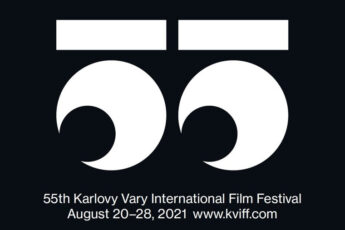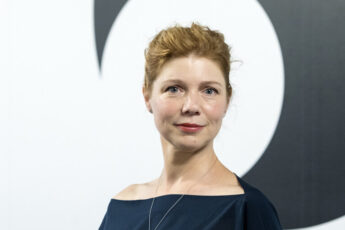
It has been a long-known fact that the number of women who have won major awards at top tier film festivals can be counted on two hands. Prior to the global wake-up call of the last two years, the numbers were: one in Cannes, four in Venice, six in Berlin and eight in Locarno. For festivals that have been granting awards for over seventy years, these figures are dismal indeed. Across the Atlantic, the first and only female director to receive an Oscar prior to 2021 is usually considered to be Kathryn Bigelow, whose The Hurt Locker was awarded in 2010. However, prior to 2010, three female directors had already won the Academy Award for best international director. While not many, but still more than one, these are Marleen Gorris, awarded for Antonia’s Line (1995), Caroline Link, who won with Nowhere in Africa (2002), and Susanne Bier, who won with In a Better World (2010).
As is often the case, it appears to be easier to outsource “controversial” awards to foreign films than to recognize talent in one’s own ranks. Adding insult to injury, this implies that patriarchically organized cultural institutions can pride themselves by “accepting” women all the while excluding those women close to them from institutional participation. This pattern can be observed at the European film festivals as well. Before 2021, the sole Palme d’Or awarded to a woman went to New Zealander Jane Campion; the four Golden Lions to German Margarethe von Trotta, French Agnes Varda, Indian-American Mira Nair, and American Sofia Coppola. In Berlin, all Golden Bears but one (taken home by Peruvian Claudia Llosa) went to Eastern European directors: Hungarians Márta Mészáros and Ildikó Enyedi, Bosnian Jasmila Žbanić, Ukrainian Larisa Shepitko, and Romanian Adina Pintilie. This double-game of award diplomacy may be as scandalous as the overall low number of prizes awarded to female directors. It is a particularly savvy form of genderwashing, whereby the practice of equality is performed by giving awards to foreign directors while keeping the threat of award usurpation by domestic female directors at bay.
In the film festival landscape of Eastern Europe, this pattern is similar both in the sense that female directors are notoriously underrepresented and that the few prizes that go to women are sent abroad. The first Crystal Globe ever to have been awarded at the Karlovy Vary IFF went to Polish director Wanda Jakubowska for The Last Stage (1948). Jakubowska remained the only female director to win the prize for the next 48 years, when American Laurie Collyer won in 2006 with Sherrybaby. Besides Karlovy Vary, the other festival with a history as long as that of other top tier festivals is the Moscow International Film Festival. It awarded its main prize to three female directors. There was French award winner Yolande Zauberman (Me Ivan, You Abraham, 1993) and the Brit Tinge Krishnan (Junkhearts, 2012). And in 2007, the festival even dared to award a Russian director, Vera Storozheva, for her Travelling with Pets, making it the only major festival to have awarded a domestic director with the main prize.
The winds changed in 2021. Earlier this year, Chloé Zhao was awarded the Oscar for Nomadland. Shortly afterwards, Julia Ducournau was awarded the Palme d’Or in Cannes, and Erika Hníková was awarded the Special Jury Prize at Karlovy Vary. Some festivals appear to be overwhelmed by the close presence of their female peers — see the recent mishap at the Thessaloniki Film Festival, where the president of the festival, Orestis Andreadakis, “exceptionally” gave the floor to the chairman of the board, “because for the first time a woman is in this position” – and such forms of patronizing speech may remain a common convention for “accepting” women. Nevertheless, the awards granted to female directors this year may not only be welcomed because they help narrow the gender gap in film prizes. They will also make it increasingly difficult for national film industries to perform recognition of female talent at home by genderwashing their festival with the help of foreign directors. It remains to be seen whether gender equality in awards will be a new normal, or whether this year will simply serve as a cathartic exception, making a return to the status quo more likely. A more pessimistic view, which would apply for Europe but not for the US, may associate the recognition of domestic female talent with an increasing nationalization of identity politics. In this view, the prizes are not triumphs of gender equality but instruments of a culture war, in which demands for equality are used for political polarization and rising nationalist sentiment. Regardless of one’s position on the gender politics of prizes, it seems apparent that the struggle for equality and the struggles for power within the film industry as well as beyond continue.
***
Our October issue features our coverage from various events we recently visited offline and/or online. Patricia Bass and Colette de Castro report from the Karlovy Vary film festival, where they saw Olmo Omerzu’s domestic drama Bird Atlas and Erika Hníková’s Every Single Minute about a family’s relentless educational routine, interviewing Erika Hníková as well as Olmo Omerzu while there. At the FIDMarseille, Anna Doyle reviewed the experimental biopic ILIAZD about an understudied avant-garde figure, and spoke to its director Stanislav Dorochenkov. Anna Doyle also covered Dina Karaman’s Letters about the End of the World and Alexandra Anikina’s Data Field, two experimental films both of which screened at the Moscow International Experimental Film Festival. Isabel Jacobs saw the recently discovered avant-garde short Europa by Franciszka and Stefan Themerson at the BFI festival in London. Finally, Antonis Lagarias reviewed two recent festival travelers: Kiril Serebrennikov’s chronically over-interpreted Petrov’s Flu, and Andrei Gruszniczki’s No Rest For The Old Lady about an old but ailing friendship.
We hope you enjoy our reads.
Konstanty Kuzma & Moritz Pfeifer
Editors




Leave a Comment